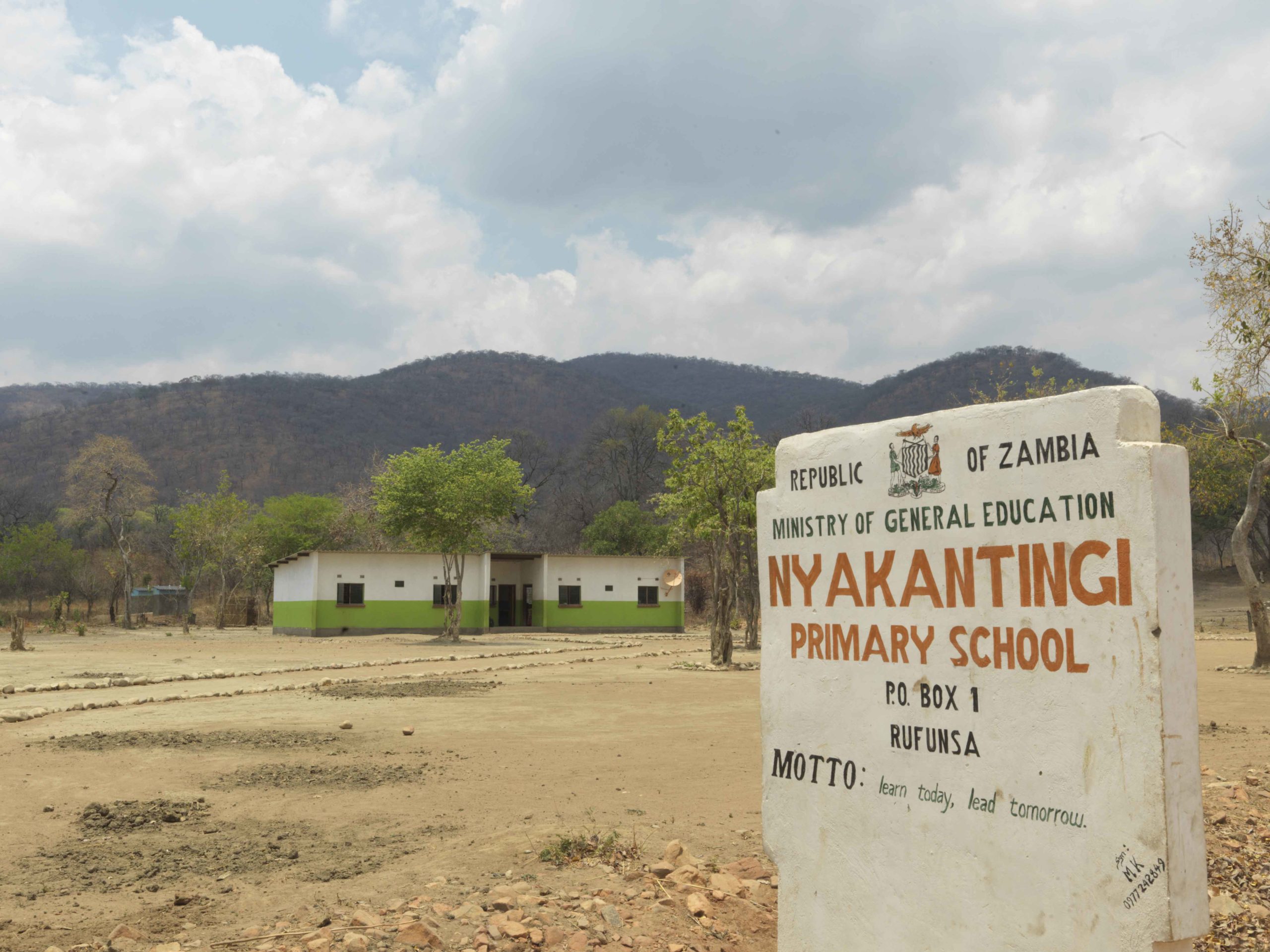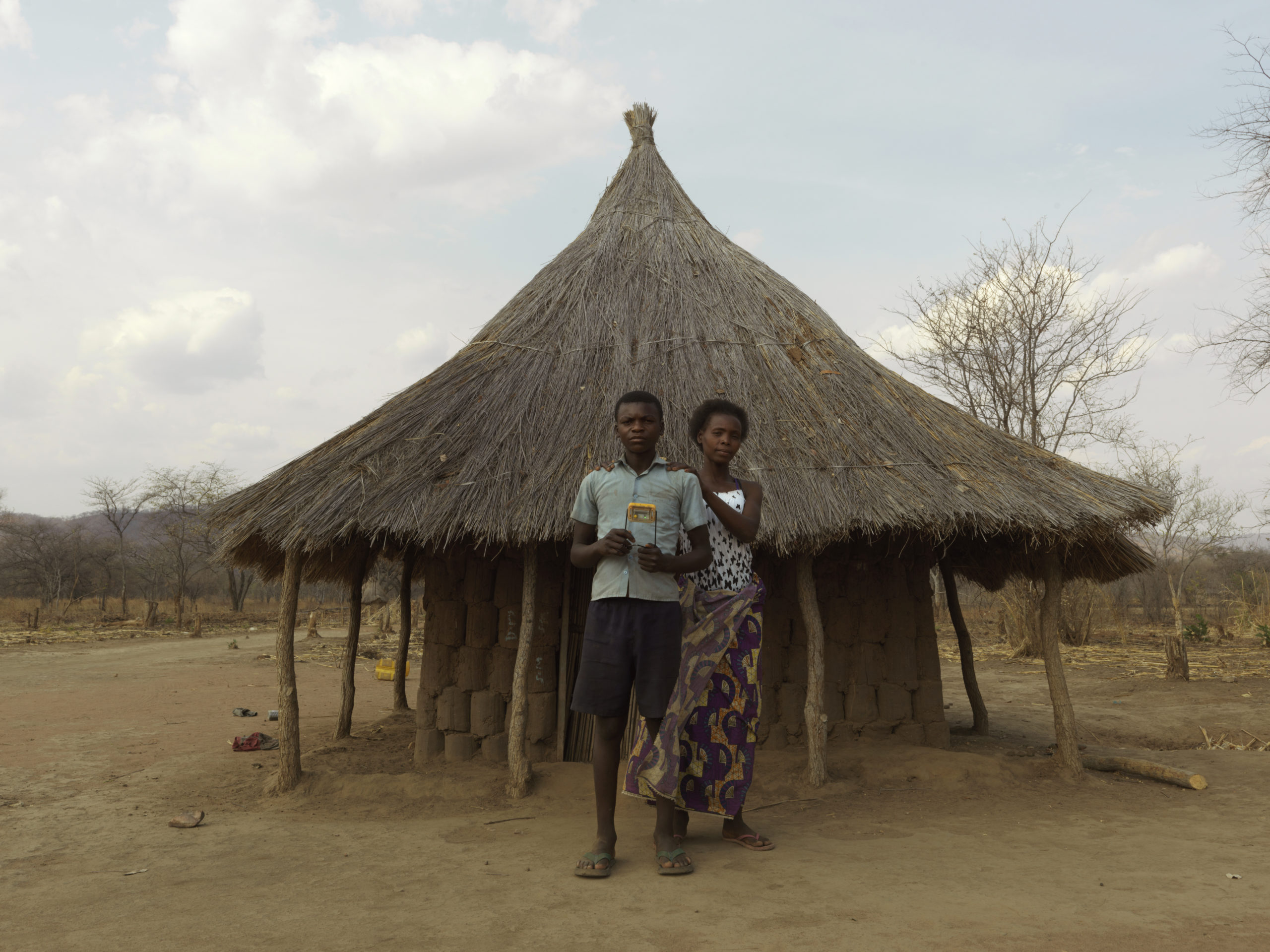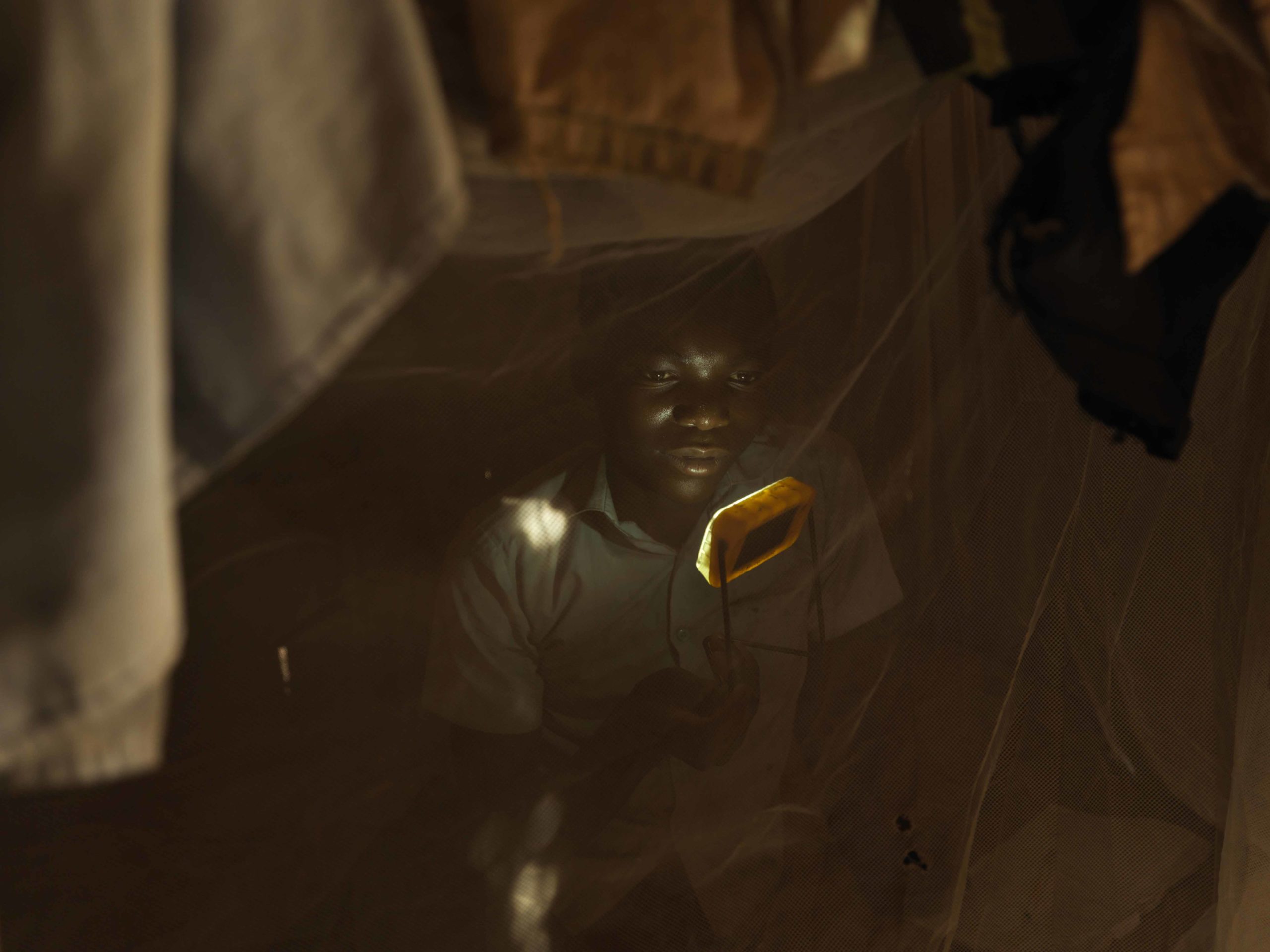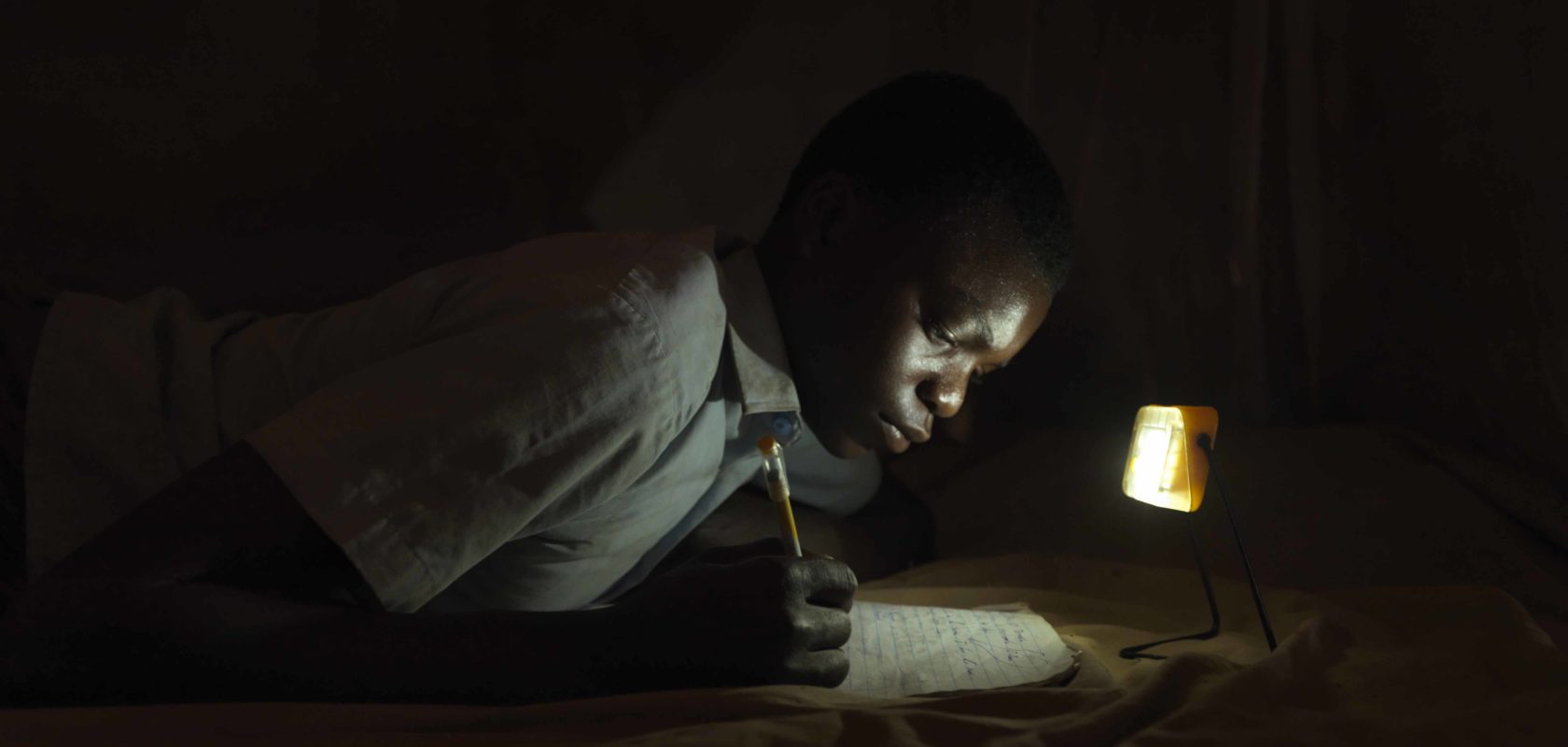Derrick studies at Nyakantingi primary school in Zambia. It’s a rural school, miles away from the electricity grid – in an area that has been badly hit by the severe drought. The land in the village is dry, and many families are struggling to put food on the table. When the sun sets, there is nothing left to do but go to sleep as the village, in lacking electricity, becomes pitch black.

Nyakantingi Primary School is a rural school that has a Light Library so children can access solar lights.
However, over the past eight months, things have started to change. A Light Library was introduced at the village school. A Light Library works like a library for books, but with solar lights. It allows students to borrow a light to take home in the evening so that they can study at night.
Derrick and his family live in a hut close to the school. His mum Mervis learned about the solar light when Derrick started bringing one home with him in the evening. Since then, her son’s education has become a priority in her life. She says that when a child is educated, he doesn’t experience as many struggles in life.

Derrick and his mother standing outside their home holding a solar light that has changed Derricks life.
Derrick has now become the best student in headteacher Ms. Michelo’s class. Ms. Michelo started working at the school two years ago and has seen great change since the Light Library was introduced, perhaps it can be attributed to her own brilliant idea,
‘When you [SolarAid] brought in the lights I thought “How can I complement this Solar Library?”, so I also brought some books that I use for my kids, and I said, “when you borrow a light, I’m encouraging you to also select a book from here. You can utilise this book, and if you find anything, you are very free to come to the office and consult. Come with a list of new words, we read them together.” I have seen Derrick doing that, he constantly comes to the office, “Madam, I need assistance on this one.”’

The news about the new solar-powered lights spread quickly, ‘they started coming in numbers, and what I have seen over time, most of them now, are able to read. The young ones are breaking through in Zambian language and the older ones are breaking through in English as well’, says Ms. Michelo.
Derrick used to struggle with ‘mirror writing’, writing letters backwards, but that is a thing of the past. His favourite subjects in school are Maths, Science and English. He is dreaming of becoming a teacher in the future – just like Ms. Michelo, ‘He has turned out to be the best reader in the school. He wasn’t like that before. Actually, it’s so amazing, I never thought he would get to where he is now. It’s not just about me motivating him, he also has the motivation within himself. He wants to see himself out of that poverty’, Ms. Michelo says.
Inspiring her students is Ms. Michelo’s passion, ‘Even when I’m teaching them, I do encourage them saying that they are not so underprivileged that they think in their minds. I always give them examples that “this president that you are seeing, was not born in Lusaka!”’

At 7 pm each night, Derrick sits down to study for an hour and a half, and then Mervis is able to use the light to cook. After that, the family has time to sit around and chat before going to bed, hearing about each other’s day. Socialising in the evening is another change that Ms. Michelo has noticed, ‘The solar lights have helped the children to bond, I say bonding because they have time to chat in the evening, unlike before when they just go to sleep. You know in the village, it’s just that way, one goes into that hut, the other one goes into that hut. But the light has brought the family together. They can sit around, they will see each other and then they will chat. With the lights now, you will find them sitting around (…) When they come together like that, it’s a time to get to know each other.’
Access to light changes everything. Together, we can End the Darkness.
